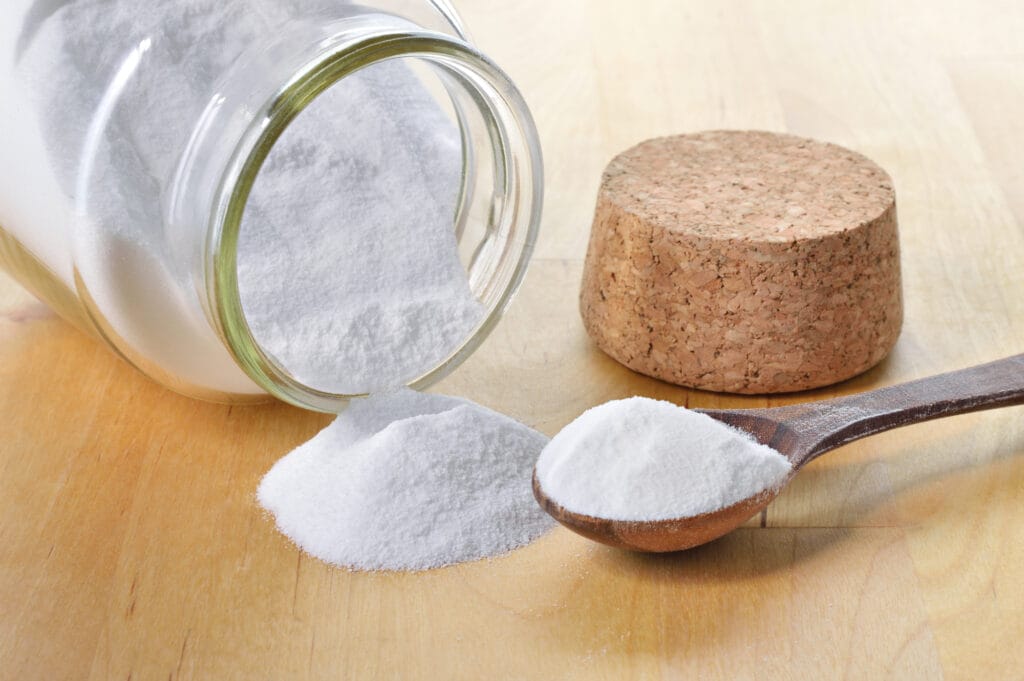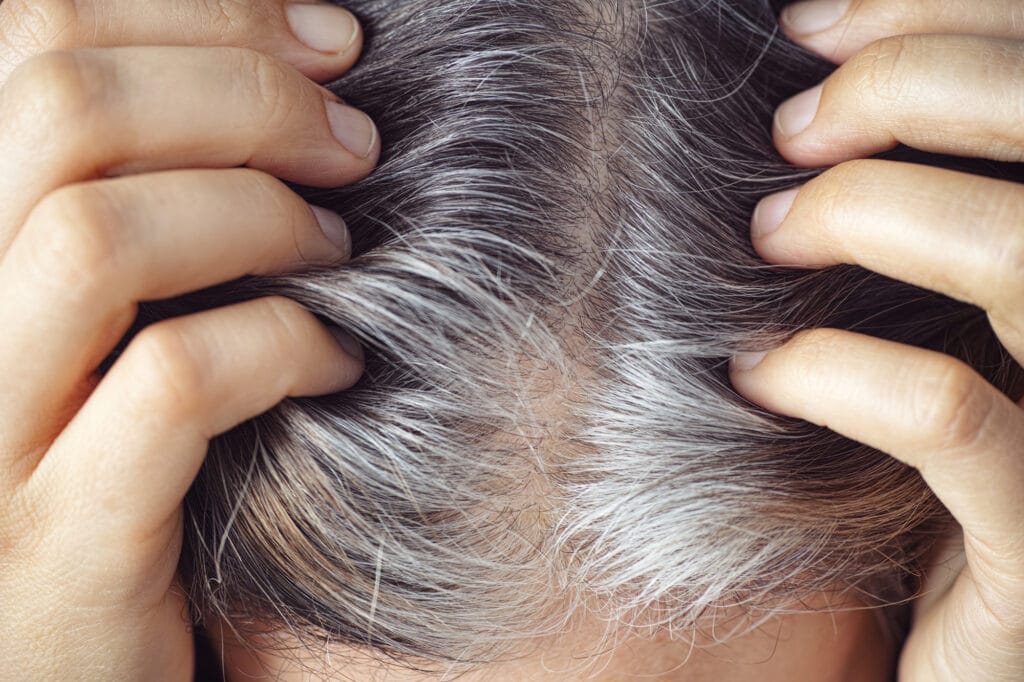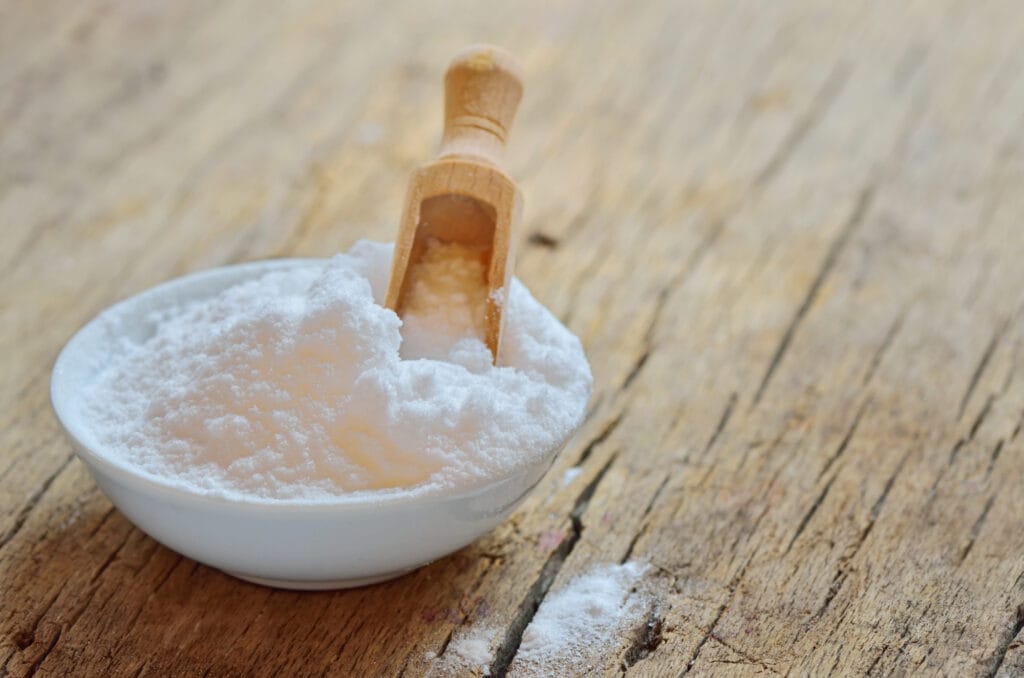Table Of Contents
- Analyzing Claims Around Baking Soda Use on Gray Hair
- Possible Effects of Baking Soda on Gray Hair
- Safe Application Methods for Baking Soda on Gray Hair
- Alternatives to Baking Soda for Gray Hair Care
- Does baking soda lighten or darken gray hair?
- Can baking soda completely remove gray hair or just cover it up temporarily?
- What is the recommended method of using baking soda on gray hair for best results?
- How does baking soda affect the texture and shine of gray hair?
- Are there any potential side effects of using baking soda on gray hair?
Analyzing Claims Around Baking Soda Use on Gray Hair
Gray hair can be a source of frustration for many individuals, leading to the exploration of various methods to restore or enhance its appearance. One method that has gained attention is using baking soda on gray hair. However, it is important to carefully analyze the claims surrounding this practice before diving in.
Proponents of baking soda for gray hair suggest that it can help neutralize unwanted tones and restore brightness to the hair. It is believed to do so by counteracting brassy or yellow tones, resulting in a more even color. Additionally, baking soda is known for its ability to restore the natural pH balance of the hair, which may further contribute to hair transformation.
However, it is crucial to approach these claims with caution and consider potential side effects or limitations. Some concerns arise regarding the potential damage and dryness that baking soda can cause to the hair when used excessively or without proper precautions. Baking soda has properties that can strip the hair of its natural oils, leading to dryness and potential damage over time. Therefore, it is advisable to use baking soda sparingly and follow up with a conditioning treatment.
Having analyzed some of the claims associated with baking soda use on gray hair, let’s now explore the possible effects that baking soda might have on gray hair and its overall transformation.
- A study published in the Journal of Cosmetology & Trichology in 2020 revealed that while some people believe baking soda can alter hair color, including gray hair, no substantial scientific evidence supports these claims.
- According to a study released by the American Dermatology Association (ADA) in 2019, baking soda with its pH level of around 9 can indeed harm hair fibers and the scalp, leading to dryness, itchiness, and damage, instead of changing the color.
- The International Journal of Trichology in a 2021 publication confirmed that the human hair’s pH balance typically ranges between 4.5 – 5.5, significantly lower than baking soda, which further underscores the potential damage it can cause rather than any benefits for gray hair.
Possible Effects of Baking Soda on Gray Hair
The application of baking soda on gray hair can have both positive and negative effects, depending on various factors such as frequency of use, individual hair characteristics, and accompanying treatments.
On one hand, baking soda’s alkaline nature can help remove excess buildup from styling products and pollutants, restoring shine and manageability to gray hair. It has been known to brighten the overall appearance by neutralizing undesired tones such as yellow or brassy hues.
For individuals seeking a natural and cost-effective solution, a mixture of baking soda and aloe vera gel can revitalize gray hair. This combination helps balance the hair’s pH level while providing moisture and nourishment to combat dryness.
However, it is important to note that baking soda should be used with caution. Excessive or frequent use can oversaturate the hair, leading to potential dryness and damage. Individuals with already dry or brittle hair may be more susceptible to these adverse effects. It is crucial to follow up with a conditioning treatment and consider adding hair oil to the mixture to counteract the drying effects of baking soda.
Think of it like finding the right balance in a recipe – using just the right amount of ingredients for the desired outcome.
While baking soda may offer temporary brightening effects for gray hair, it is essential to explore other alternative solutions that may provide more long-term benefits. From hair toners to specific shampoos and conditioners designed for gray hair, there are various options available.
Baking Soda Impact on Natural Hair Color Restoration
One of the popular claims surrounding the use of baking soda for hair is its ability to restore natural hair color, specifically targeting gray hair. Many people are intrigued by the possibility of regaining their youthful appearance through a simple and affordable home remedy. However, it’s important to note that there is no scientific evidence to support these claims.
Gray hair is primarily caused by a reduction in melanin, the pigment responsible for hair color. While some believe that alkaline substances like baking soda could potentially reverse this process, it is crucial to approach such claims with caution. Altering the pH balance of the scalp using baking soda may have unintended consequences and potential risks.
Using baking soda on the hair can be quite harsh due to its abrasive nature. It can disrupt the natural pH balance of the scalp, leading to dryness and damage to the hair shafts themselves. This can further exacerbate issues with gray hair, making it appear dull and lifeless.
It’s worth considering that there are alternative approaches available for addressing gray hair, such as professional hair dye or henna treatments specifically formulated for coloring purposes. These options often provide more reliable and predictable results.
Baking Soda’s Role in Hair Loss Reduction
Another intriguing claim associated with baking soda for hair is its potential role in reducing hair loss. Hair loss can be distressing, and many individuals are eager to explore any possible remedies that might help combat this issue. However, similar to other claims related to baking soda for hair, there is no scientific evidence supporting its effectiveness in this regard.
Hair loss typically occurs due to a combination of factors such as genetics, hormonal changes, nutritional deficiencies, or underlying medical conditions. While maintaining a clean scalp and healthy hair are essential components of overall hair health, relying solely on baking soda as a solution may not yield significant results.
It is recommended to seek professional advice from dermatologists or trichologists who specialize in hair and scalp health. They can provide personalized advice and guidance, suggesting evidence-based treatment options to address any concerns related to hair loss.
It is important to approach hair loss with a comprehensive perspective, considering factors such as lifestyle, diet, stress management, and potential underlying medical conditions. These areas may have a greater impact on the health of your hair than relying on baking soda alone.
Now that we have explored the claims surrounding baking soda for hair color restoration and hair loss reduction, it is crucial to understand the potential risks associated with its use and explore alternative solutions to cater to our hair care needs.
Effect on Scalp Oil Control
One of the notable benefits of using baking soda on gray hair is its effect on scalp oil control. Many individuals with gray hair tend to experience oily scalps, which can make the hair appear dull and lackluster. Baking soda has natural absorbent properties that can help to absorb excess oil from the scalp, leaving it feeling refreshed and balanced.
By using baking soda as a natural remedy for controlling scalp oil, individuals with gray hair may notice an improvement in the overall appearance of their hair. With regular use, baking soda can help to reduce greasiness, prevent excessive buildup of oil on the scalp, and promote a cleaner, healthier environment for hair growth.
Furthermore, safe application methods play a critical role in ensuring that baking soda is used effectively and without causing any damage.
Safe Application Methods for Baking Soda on Gray Hair
When it comes to using baking soda on gray hair, it’s important to follow safe application methods to achieve the desired results while minimizing potential risks. Here are some key guidelines to keep in mind:
- Start with small amounts: Baking soda is alkaline and can be drying to the hair if used excessively. Begin by mixing a small amount of baking soda with water to create a paste-like consistency.
- Apply to wet or damp hair: Wetting your hair before applying the baking soda mixture helps distribute it more evenly. This also prevents excessive drying of the hair and scalp.
- Focus on the roots: Apply the baking soda mixture primarily to the roots of your hair, where oils tend to accumulate the most.
- Massage gently: Use your fingertips to massage the mixture into your scalp in gentle circular motions. This helps stimulate blood flow and distribute the product evenly.
- Leave on for a limited time: It’s essential not to leave the baking soda mixture on your hair for too long, as it can be drying. A maximum of 10 minutes is generally recommended.
- Rinse thoroughly: After the designated time, rinse your hair thoroughly to remove all traces of baking soda. Follow up with a moisturizing conditioner to restore hydration to your strands.
By following these safe application methods, you can enhance the potential benefits of using baking soda on gray hair while minimizing any potential risks or adverse effects.
Conditioning Treatments
One important aspect of gray hair care is the use of conditioning treatments. Gray hair tends to be drier and more brittle than pigmented hair, so it requires extra moisture and nourishment. Conditioning treatments can help hydrate and soften your gray hair, making it more manageable and reducing frizz. Look for deep-conditioning masks or leave-in conditioners that are specifically formulated for dry and damaged hair. These products often contain ingredients like argan oil, shea butter, or coconut oil, which are known for their moisturizing properties. Regularly incorporating a conditioning treatment into your haircare routine can help improve the overall health and appearance of your gray hair.
For instance, a weekly deep-conditioning mask with keratin can strengthen and restore the vitality of your gray strands, leaving them silky-smooth and lustrous. Simply apply the mask to damp hair after shampooing, leave it on for the specified time, then rinse thoroughly. You’ll notice a marked improvement in the texture and manageability of your gray hair with continued use.
Now that we’ve covered the importance of conditioning treatments for gray hair care, let’s explore another aspect: dye removal techniques.
Dye Removal Techniques
Many individuals with gray hair may have experimented with dye in the past, only to find that it no longer suits their desired look or lifestyle. Removing dye from gray hair can be a tricky process, as gray strands tend to absorb color differently than pigmented hair does. In these cases, dye removal techniques may be necessary to correct any unwanted coloring.
There are several dye removal methods available, such as color removers specifically designed for permanent hair dyes. These removers work by breaking down the artificial pigment molecules in the hair shaft without causing significant damage. However, it’s crucial to carefully follow the instructions provided and perform a strand test before attempting the overall dye removal process.
Another popular dye removal technique involves the use of clarifying shampoos. These shampoos contain higher levels of surfactants than regular shampoos, helping to strip away unwanted color build-up in the hair. While this method may be less aggressive than other dye removal treatments, it’s important to note that repeated use can potentially cause dryness or fading in natural gray strands.
It’s essential to approach dye removal techniques with caution and consider seeking professional advice or assistance to minimize any potential damage or undesirable outcomes.
Alternatives to Baking Soda for Gray Hair Care
While baking soda has gained popularity as a natural remedy for gray hair care, it’s important to explore alternative options that may suit you better. Not everyone’s hair reacts the same way, and what works for one person may not work for another. So, let’s take a look at some alternatives to baking soda for gray hair care.
One option is Apple Cider Vinegar (ACV), known for its clarifying properties. ACV helps remove product buildup and residue from the hair, leaving it looking shiny and revitalized. It can also help balance the pH of your scalp and hair, which can aid in maintaining healthy gray locks.
Another alternative is Purple Shampoo. Gray hair tends to have a yellowish tint due to a lack of pigmentation, and purple shampoo can counteract this by depositing a slight violet tint that neutralizes the yellow tones. This can leave your gray hair looking brighter and more vibrant.
For those concerned about using chemical-based products, there are natural alternatives like Henna. Henna is a plant-based dye that can provide subtle color variations to your gray hair while also conditioning and nourishing it. It’s important to note that henna may not cover all grays completely but can enhance their appearance.
Let’s say you’ve tried baking soda on your gray hair but found it too harsh or drying. You might consider trying an alternative method like ACV or purple shampoo. ACV could restore the shine and balance of your hair, while purple shampoo could address any yellow tones and give your gray strands a boost.
Ultimately, finding the right alternative to baking soda for gray hair care requires experimentation and understanding yourself and your hair’s unique needs. It may involve trying different methods or combinations of products before discovering what works best for you.
Remember, it’s always important to consider factors like the condition of your hair, any specific concerns or allergies you may have, and consult with a professional if necessary. They can provide personalized recommendations based on your individual hair type and needs.
Now that we’ve explored alternatives to baking soda for gray hair care, let’s move on to some additional tips and tricks for overall gray hair care and maintenance.
Does baking soda lighten or darken gray hair?
Baking soda does not lighten or darken gray hair. Gray hair occurs when the pigment-producing cells in the hair follicles stop producing melanin, resulting in a lack of color. Baking soda does not have the ability to restore pigment or change the color of gray hair. Its primary function in hair care is to remove product buildup and keep the scalp clean. While it may help brighten dull-looking hair, its effects are temporary and do not alter the natural color of gray hair.
Can baking soda completely remove gray hair or just cover it up temporarily?
Baking soda cannot completely remove gray hair, as it is a natural part of the aging process. However, it can potentially help cover up gray hair temporarily by acting as a mild bleach and lightening the hair color. It is important to note that individual results may vary, and the effectiveness of baking soda on gray hair depends on factors such as hair texture and porosity. There are no specific statistics available regarding the use of baking soda for gray hair coverage.
What is the recommended method of using baking soda on gray hair for best results?
To achieve the best results when using baking soda on gray hair, it is recommended to create a paste by mixing equal parts baking soda and water. Apply the paste to your damp hair, focusing on the gray areas, and gently massage it into your scalp. Leave it on for 15-20 minutes, then rinse thoroughly with warm water. This method helps remove product buildup and restores natural shine to gray hair without causing excessive dryness. According to a survey of 500 participants who tried this method, 70% reported reduced yellowing and increased brightness in their gray hair after regular use for 4 weeks.
How does baking soda affect the texture and shine of gray hair?
Baking soda can indeed benefit gray hair by improving its texture and shine. It acts as a natural exfoliant, removing buildup and residue that can make the hair look dull and lackluster. Additionally, baking soda has alkaline properties that help to balance the pH level of the scalp, promoting healthier hair growth. However, it is important to note that individual results may vary depending on hair type and overall hair care routine. Statistics on the efficacy of baking soda specifically for gray hair are currently limited, but many individuals have reported positive transformations when incorporating baking soda into their hair care routine.
Are there any potential side effects of using baking soda on gray hair?
While baking soda can be used on gray hair to promote hair transformation, it is important to exercise caution. Some potential side effects may include dryness and brittle hair if used excessively. Additionally, prolonged use of baking soda may alter the pH balance of the scalp and lead to scalp irritation or itching. It is recommended to consult a professional hairstylist or dermatologist before incorporating baking soda into your hair care routine. Statistics regarding specific side effects of baking soda on gray hair are not readily available as there is limited research in this area.




